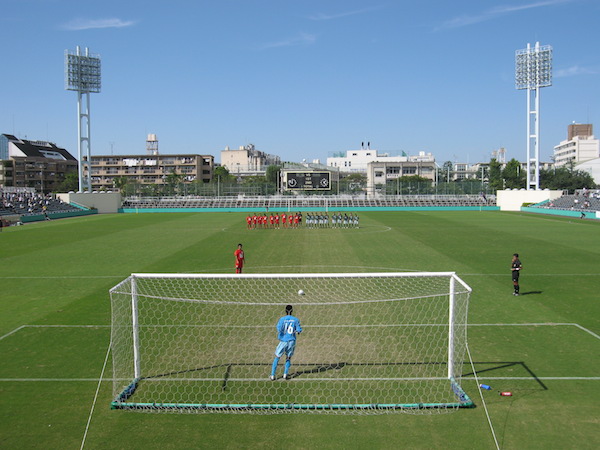Dear Sports Fan,
How does overtime work in different sports? I’ve been watching more hockey this year and I know that overtime in the playoffs is different from overtime in the regular season. Are other sports like that too?
Thanks,
Sonja
Sonja
Dear Sonja,
To quote the great Kanye West in honor of his latest album, “like old folks pissing, it all Depends.” Each sport has its own approach to how to proceed with competition if the score is tied after regulation time has expired. Like you say about hockey, even within each sport it can differ depending on whether the game takes place during the regular season or the playoffs. So while it may seem like I’m getting paid by the number of times I write “sometimes” in this post, that’s just the way overtime works.[1]
In general, extra time formats in sports (overtime) fall into a few buckets:
- Sudden Death: the most exciting two words in sports. This format is so dramatically named because the first team to allow their opponent to score loses the game immediately. This adds a heightened layer of tension that’s pretty much unparalleled. Sudden death doesn’t necessarily mean
Sports: hockey, soccer (sometimes), football (sometimes), baseball (kind of), golf (sometimes). - Extra Period: This is essentially when an extra period of time is added and whoever is leading at the end of that extra period wins. It still involves added tension but doesn’t quite have the audience on a knife’s edge, since a single score doesn’t necessarily dictate the outcome.
Sports: basketball (always), baseball (again kind of. In baseball they play a full inning, so essentially the team that has its turn to hit first in the inning is playing Extra Period but the team that hits second can be in a Sudden Death type situation.) - Shootouts: The ultimate Mano a Mano sports showdown. Each team picks its best payers (five in soccer, three in hockey) and each one gets a chance to score on the opposing team’s goalie. Some dismiss it as a gimmick but – for the viewer – there are few things more dramatic than seeing an athlete alone on the field or rink with the weight of the entire game on their shoulders. Of course if the shootout is tied after the allotted players have shot, you get a sudden death shootout, where the first player to miss costs his or her team the game.
Sports: Hockey, soccer (in both cases this assumes you make it through the extra periods with neither team scoring and in the case of hockey that the game is during the regular season) - None: Although increasingly rare, there are some situations in sport where if a game is tied at the end of regular time the two teams shake hands, walk off the field, and neither team wins. It’s a tie! In the old days in soccer two teams that ended the game in a tie would go home, rest up, and play again in a few days in order to get a result.
You may have noticed that we haven’t covered football at all in this post. That’s because football is so absurdly complicated in its overtime rules that it is deserving of its own post. The college football rules are different than the professional ones… which differ from the regular season to the playoffs.
Thanks for your question and look out for a football overtime post soon,
Dean Russell Bell
Dean Russell Bell
Footnotes (↵ returns to text)
- Editor’s note. Mister Bell is not being paid at all for this post.↵

